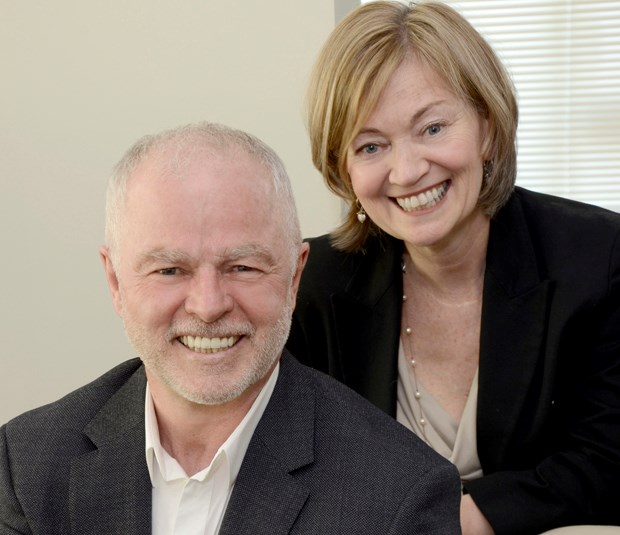The personal story of a North Vancouver addictions therapist who himself battled alcoholism until he was homeless on the Downtown Eastside is the subject of a CBC TV documentary airing this Thursday.
In fact it was Mike Pond’s partner, documentary filmmaker Maureen Palmer, who hit “Record” on her iPhone while Pond was in the throes of a relapse after being five years sober – an uncomfortable moment that couldn’t be “faked” later.
“I woke up in the morning with the worst bloody hangover. I had forgotten what a hangover felt like,” said Pond, who was also sick with shame and regret.
The Central Lonsdale couple was at this point a few months into chronicling Pond’s struggle with overcoming alcoholism, for a documentary called Wasted set to debut on CBC’s The Nature of Things with David Suzuki. Instead of being angry, Palmer wanted a scientific explanation for why Pond relapsed.
Getting behind the science of alcoholism aided in Pond’s quest for answers and a new treatment for his addiction, that goes beyond the standard 12-step approach. The couple crisscrossed the United States and went across the pond, over a nine-month period that started last January, speaking to renowned professors and scientists in the fields of behavioral science and addictions, in search of evidence-based addiction treatments.
At Stanford University Pond learned how alcohol and drugs hijack the brain’s reward circuitry. Early on in his addiction, Pond would bring two bottles with him when he went mountain biking: one with Gatorade and the other, Gatorade and vodka, for the downhill reward.
In the documentary, Pond undergoes alcohol trigger testing at a medical university in South Carolina, confident, after being shown images of alcohol, he has no cravings. His brain scans, lit up with activity, paint a different story.
“I was shocked by how my brain, even after all those years of sobriety, still got really excited about seeing pictures of alcohol,” says Pond, realizing the part of his brain that controls addiction is not wired like an average person’s.
Pond’s alcohol addiction took hold about eight years ago. He later learned there was a genetic factor. It didn’t help that he was living in Okanagan wine country and immersed in that culture.
The stress of running a thriving therapist practice, and dealing day in and day out with his patients’ traumas, fuelled Pond’s addiction. He lost his home, his practice – and his wife and sons. A penniless Pond left Penticton on a bus that spit him out on Vancouver’s Downtown Eastside, where he slept in back alleys and ate out of dumpsters.
Pond later wound up on the streets of North Surrey which he found to be unkind, and then bounced between “wretched” addictions recovery homes for two years.
The real wakeup call was when Pond ended up in the intensive care unit and almost died. Then on the path to recovery he met Palmer who wasn’t put off despite Pond revealing his past demons by the second date.
The more Pond told Palmer over the months the more she wanted to document his story. “It’s not just about choice and willpower; there’s so much else going on here,” says Palmer. The couple wrote a book together: Wasted: An Alcoholic Therapist’s Fight for Recovery in a Tragically Flawed Treatment System.
A 12-step program is the first and often only course of action generally prescribed to an addict, according to Pond. He, along with an addictions specialist interviewed for Wasted, likens this approach to “medical malpractice” if other therapies are not being explored.
The couple says there is a laundry list of medications that treat addiction that either doctors don’t know about or the drugs aren’t available in Canada. Pond travelled to Bellingham, Wash., for a series of five pricey injections of the drug Vivitrol, which blocks opiate receptors in the brain and “extinguishes” the addiction over time.” The effects were immediate for Pond. “It took away that kind of agitation and the restlessness and the anxiety that we get.”
The couple will continue to lobby the powers that be to pour money into addictions research funding, and to have doctors equipped with “an expanded tool kit” to treat addicts, who Pond says are still stigmatized in the health-care system. ``It`s not a moral problem – it`s a medical problem,” adds Palmer.
Wasted airs Thursday at 8 p.m. on CBC TV.



